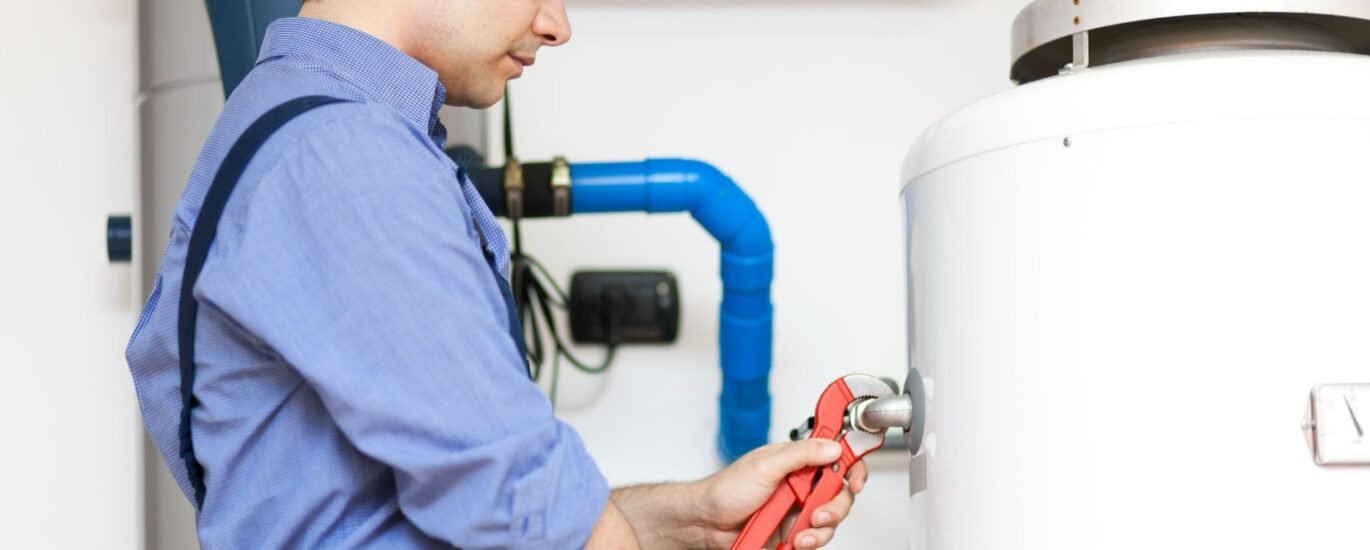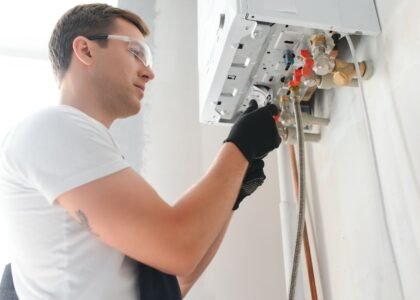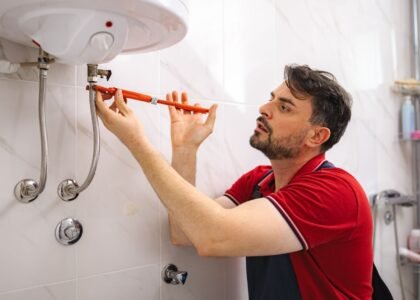Introduction
If you’ve already done Blog 1’s installation and Blog 2’s maintenance, you might now be evaluating your next upgrade. Whether your current unit is aging or your household needs have changed, this guide helps you choose the right replacement or upgrade.
We’ll also loop back to how installation and maintenance tie together across the lifecycle.
Why Consider an Upgrade?
You may be thinking: “My heater still works — do I need to upgrade?” Here are compelling reasons:
- Rising power/gas bills — modern units are more efficient
- Capacity issues — your usage has increased
- Frequent repairs — repair costs start outweighing replacement
- Space constraints — you want a more compact unit
- Environmental goals — reduce energy footprint
If any of these resonate, it’s a good time to explore your options.
Upgrade Options: What to Consider
Here are the major upgrade paths:
1. Higher-efficiency tank
Modern tank units are better insulated, more efficient, and offer greater reliability.
2. Tankless (on-demand)
Produces hot water only when needed, with virtually no standby loss. Best for homes with predictable flow demands.
3. Hybrid / Heat Pump Water Heaters
Uses ambient air to help heat water — great energy savings for moderate climates.
4. Solar-backed systems
Solar panels heat pre-water, with backup from electric or gas — ideal for eco-conscious homeowners.
5. Dual / parallel systems
Use tank + tankless or redundant systems to ensure coverage under high demand.
Choose based on household needs, existing infrastructure, and long-term energy savings.
Comparing Costs and ROI
Upgrades involve a tradeoff between cost and benefit. Consider:
- Upfront expenses: new unit, installation complexity, venting/gas retrofits
- Operating costs: energy, servicing
- Lifespan: typical units may last 10–15 years
- Rebates / incentives: sometimes offered for high-efficiency or solar-installed systems
Calculate payback period: how many years until energy savings offset the upgrade cost. For many, that happens in 5–8 years.
Matching Upgrades to Your Situation
Here’s how to match based on preferences:
| Household Need | Suggested Upgrade Path |
|---|---|
| Modest family with steady demand | Efficient tank or hybrid |
| High simultaneous use | Tankless or dual systems |
| Energy-conscious homeowner | Heat pump or solar-backed |
| Limited space | Tankless or compact hybrid |
| Already have gas / venting | Switch to higher-efficiency gas unit |
| Electric-only home | Look for electric tank or heat pump options |
Also, leverage your maintenance history from Blog 2 to guide choice — if scale or corrosion has been a problem, maybe a sealed or stainless design is better.
How to Plan the Upgrade & Transition
Switching systems must be carefully managed:
- Evaluate existing plumbing, gas, and venting.
- Check whether larger lines or electrical upgrades are needed.
- Plan for shutdown / water downtime window.
- Remove old system and prep the space.
- Install new unit with high craftsmanship (see steps from Blog 1).
- Test and commission fully.
- Register warranties, schedule first maintenance (Blog 2).
Because upgrade installs are more complex, be sure to coordinate properly.
Maintenance Considerations After Upgrades
Upgrading doesn’t end maintenance — it changes it.
- Tankless units should be descaled every 1–2 years, especially in hard water areas
- Hybrid and heat pump units may have filters or fans to clean
- Continue annual or semiannual inspections
- Track any performance dropoffs as early warning
By combining lessons from Blog 1 and Blog 2, you stay ahead of issues.
Revisiting Installation & Service Support
Even the best upgrade can fail without proper support. That’s where you want a team familiar with installations in Chino, CA — someone who understands code, venting, water quality, and local conditions. For that reason, revisit our expert water heater installation in Chino, CA page and reach out via Contact Us when you’re ready to plan your replacement.
The right installer will also consider your maintenance history (Blog 2) and future upgrade needs when recommending systems.
Conclusion
Upgrading your water heater is about timing, smart selection, and lifecycle thinking. You want a unit that matches your usage, saves energy, and integrates smoothly with your home systems.



